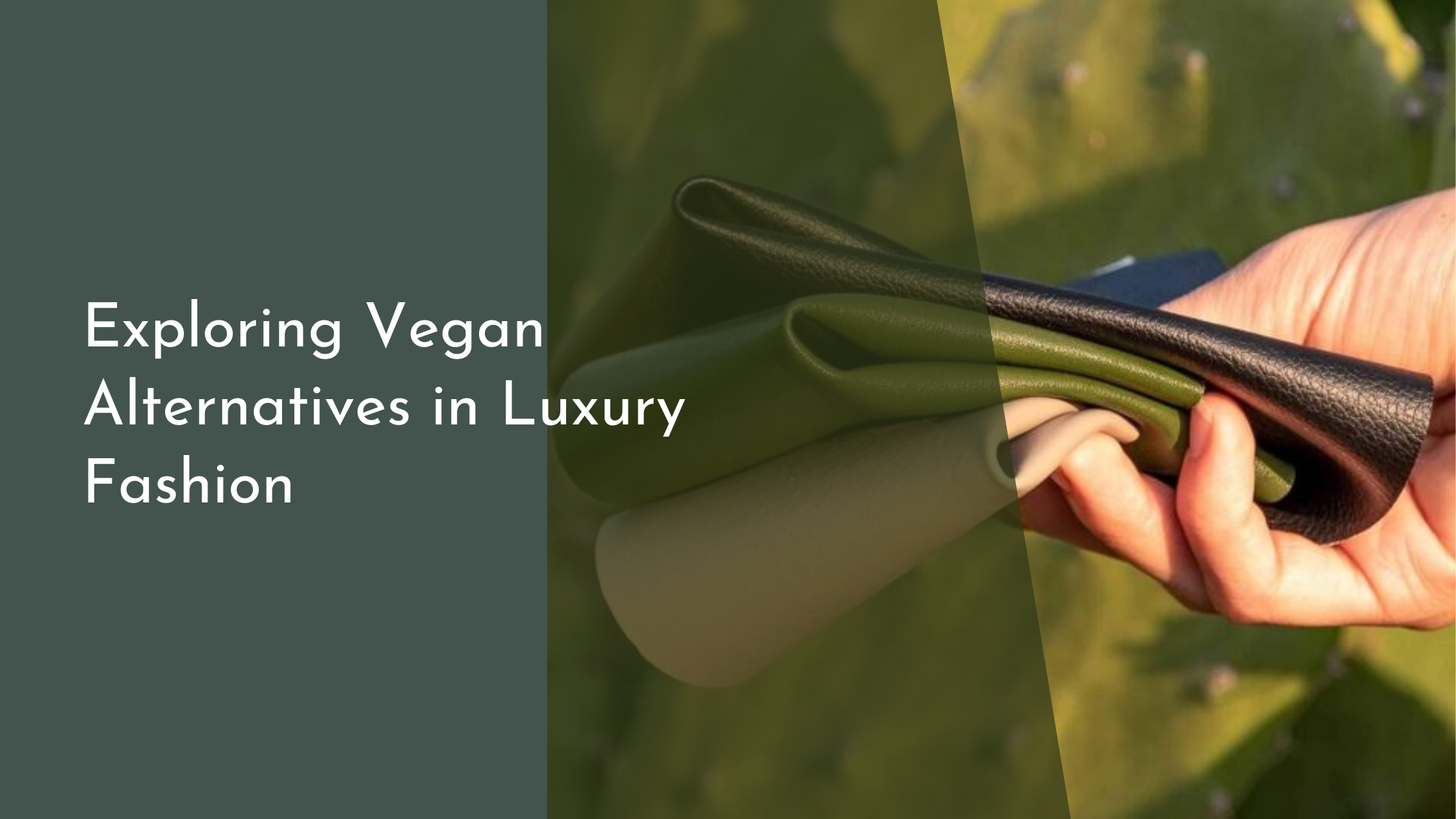Exploring Vegan Alternatives in Luxury Fashion
In recent years, the realm of luxury fashion has experienced a transformative shift as brands and designers increasingly prioritize sustainability and ethics. At the heart of this revolution is the rise of vegan alternatives, reflecting a broader societal movement towards cruelty-free and environmentally conscious lifestyles. These innovative materials and practices not only challenge traditional fashion norms but also pave the way for a more compassionate future in high-end fashion.
The Rise of Vegan Fashion in Luxury Brands
The luxury fashion sector, long synonymous with traditional materials like leather and fur, is witnessing a paradigm shift. As consumers become more aware of the ethical and environmental implications of their purchasing choices, there is growing demand for cruelty-free alternatives. Esteemed fashion houses such as Stella McCartney, Gucci, and Chanel are leading the charge by integrating vegan elements into their collections, proving that compassion and luxury can coexist. This shift is not just about meeting consumer demand but also about setting a new standard in the fashion industry, prompting other brands to follow suit.
Vegan fashion’s rise in the luxury sector is fueled by the increasing influence of conscious consumerism and the rise of information sharing across digital platforms. More customers are now looking for brands that align with their values, pushing the luxury market to evolve rapidly. By offering vegan alternatives, luxury brands are not only appealing to a younger, eco-conscious audience but are also positioning themselves as innovative leaders in an industry that is notoriously slow to change.
Innovative Materials Leading the Charge
One of the most exciting aspects of vegan fashion is the development and use of groundbreaking materials that mimic the qualities of traditional fabrics without the ethical baggage. Innovations like mushroom leather, pineapple fibers (Piñatex), and apple leather have captured the imagination of designers and consumers alike. These materials are not only sustainable but also offer comparable durability and aesthetics to their animal-derived counterparts. For instance, mushroom leather, derived from the mycelium of fungi, is not only eco-friendly but also biodegradable, making it a sought-after alternative for sustainable fashionistas.
Beyond plant-based innovations, synthetic alternatives are also garnering attention, especially those developed from recycled materials. Fabrics created from recycled plastics and other waste materials are being transformed into luxurious, high-quality textiles that are both stylish and sustainable. These developments are critical in reducing the fashion industry’s carbon footprint and illustrate a significant step forward in the ongoing quest for a more sustainable and cruelty-free luxury market.
Designers Embracing Sustainable Practices
Designers at the forefront of luxury fashion are increasingly integrating sustainable practices throughout their design and production processes. Stella McCartney, a trailblazer in vegan fashion, has long been committed to creating luxurious collections without harming animals, consistently pushing the boundaries of sustainable design. Her collections showcase that it is possible to maintain the glamour and allure of high fashion while adhering to ethical standards. This dedication is inspiring a new generation of designers to explore and adopt similar practices in their own brands.
In addition to well-established designers, up-and-coming talents are also making their mark by prioritizing sustainability from the outset. Emerging designers like Joshua Katcher of Brave GentleMan and Ewelina Kozlowska of Evelina Apparel are crafting exquisite pieces that emphasize ethical production and innovative materials. These designers are not only meeting the demand for vegan fashion but are also setting new trends that emphasize the importance of sustainability in luxury fashion.
The Future of Fashion: A Cruelty-Free Vision
As vegan alternatives continue to gain traction, the future of luxury fashion looks increasingly cruelty-free. The integration of ethical and sustainable practices is no longer a niche trend but a necessity for brands that wish to remain relevant in a rapidly changing market. By embracing vegan materials and practices, luxury brands have the opportunity to redefine elegance and sophistication for the modern age, aligning with a shift towards more mindful consumerism.
Looking ahead, the fashion industry is poised for further innovation and transformation as technology advances and consumer awareness grows. The ongoing development of sustainable and cruelty-free materials will likely lead to even more sophisticated alternatives, allowing luxury brands to offer products that are both ethically sound and fashion-forward. With a vision focused on compassion and sustainability, the future of fashion is not only bright but also aligned with the values of a more conscientious world.
The evolution of vegan alternatives in luxury fashion marks a significant step towards a more ethical and sustainable industry. As brands and designers embrace these changes, they set a new standard that challenges traditional fashion paradigms. The shift towards cruelty-free, innovative materials and practices is not just a trend but a movement that reflects a broader societal change. As consumers continue to demand transparency and responsibility, the fashion industry is being reshaped into a space where luxury and compassion go hand in hand, promising a future where fashion and ethics are beautifully intertwined.

